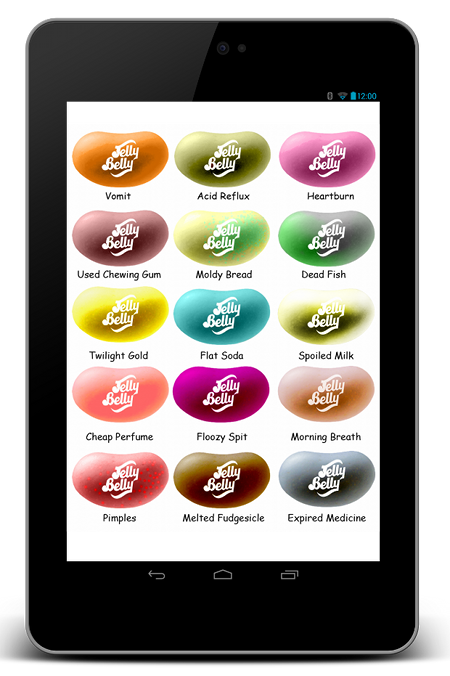Google's Nexus 7: Android tablets have the same old problems


Back in January of this year I wrote an article about why I felt that Ice Cream Sandwich, Google's latest and greatest mobile OS at the time, would have very little impact on Android's ability to succeed in the tablet market.
And you know what? I was right.
Also Read: Why Ice Cream Sandwich Won't be Able to Save Android Tablets
Since that article was written, sales of Android tablets in Q1 of in 2012 were abysmal when compared to Apple's iPad.
As of May 2012, market research firm NPD reported that the iPad had approximately 62% of the tablet market, with Samsung running at a distant second place at 7.5% and Amazon's Kindle Fire at about 4%.
So why has Android been doing so badly?
My original article noted that Android was rife with many stability and performance issues.
Much of this has appeared to have changed for the better, at least with the Nexus 7 running Jelly Bean. I've owned the Nexus 7 for several days, and I am happy to report that it seems to be a stable and well-performing device, and Google and Asus should be commended for releasing an excellent product.
However, OEMs releasing Honeycomb and Ice Cream Sandwich-based tablet products have not been doing so well. ASUS itself had a number of issues with rolling out ICS upgrades to its own Transformer tablets. Other vendors, including Android market leader Samsung have also struggled to get their own ICS updates out the door.
Many of these products will never get officially upgraded to Jelly Bean and there's a lot of inventory of these tablets still sitting in the channel.
So Nexus 7 aside, the overall perception of Android tablets are that they are buggy, and in terms of overall value, they are also overpriced and are badly supported compared to the competition.
Yes, the Nexus 7 is $200 or $250 depending on which model you buy. But the 10" tablets from the OEMs are still in the $400-$500 range, which are well within the same price point as the entry level iPad 3, which has a much higher resolution display and has many more tablet optimized apps, which are now over 225,000 strong.
By comparison, Android only has a few thousand apps at most which are actually optimized to run at full-size tablet resolutions. The Nexus 7's 1280x800 display is actually much closer to a high-end smartphone screen -- not unlike the 1280x720 pixel display on the Samsung Galaxy Nexus or the Galaxy S3, so it doesn't seem like it has an app gap to most end-users.
And until we see some very compelling and relatively inexpensive 10" Android hardware, we're not going to see a lot of tablet-optimized apps coded for Ice Cream Sandwich and Jelly Bean 4.x, because developers know that their energies are best devoted to writing Android smartphone apps, where the platform is currently enjoying a very strong marketshare.
Besides the pricing and app gap situation, there are other issues which still persist. Jelly Bean may have solved a bunch of performance and reliability issues that were persistent in Honeycomb and ICS, but the overall full-sized tablet UI is still pretty much the same and is still more complicated and harder to use and less intuitive than what exists in iOS.
For a $200 7" tablet that basically acts like a big smartphone like the Nexus 7, much of these UI and end-user acceptance issues are a lot easier to overlook. But on full-size 10" devices with higher resolution screens and much higher cost, Android's problems are much more pronounced.
It's especially noticeable when you have to use a 10" device in 16:9 landscape mode to do anything other than watch HD video, which feels just plain awkward. Sure, on a Nexus 7 this isn't a problem since you can hold a 7" device in one hand. But that's just not the case with the larger devices.
So the question is does the Nexus 7 and Jelly Bean OS fundamentally solve Android's tablet problems? I think all that it has done is reinforced the fact that 7" tablets can succeed with consumers provided they are priced accordingly -- as we saw with Amazon's introduction of the Kindle Fire last year.
However, I don't see Jelly Bean being able to solve the same fundamental problems the regular Android OEMs are experiencing now with tablets which I have outlined above. Not unless they can escape the vicious update cycle and provide better UIs than what Google provides out of the box.
And if Apple chooses to enter the 7" market with the rumored iPad Mini, or if Amazon can become extremely aggressive in pricing and features with its next 7" Kindle Fire, I believe Android's position this time next year in terms of overall tablet market share is going to look very much the same across the respective OEMs.
Has the Nexus 7 and Jelly Bean fundamentally solved Android's tablet issues? Talk Back and Let Me Know.